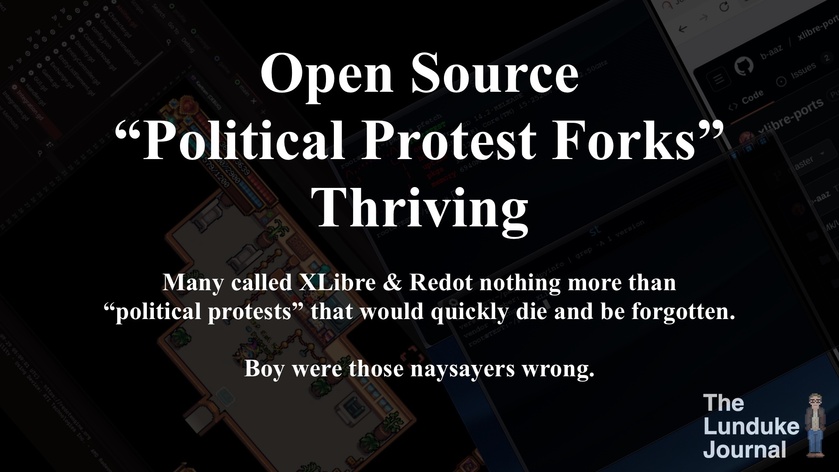Over the last year, we’ve seen a couple of high profile forks, of large Open Source projects, which were inspired — in part — by a desire to move away from the political discrimination and Leftist Extremism within the original projects.
Back at the beginning of June, the Xorg X11 server was forked, creating XLibre.
Last October, the Godot Game Engine was forked, creating Redot.
At the time, when each of these forked projects were started, many predicted that they would go nowhere. That they were nothing more than “political protest forks” — and they would die out quickly.
Let’s check in on both of those project to see if that has happened.
XLibre - The Xorg Fork
Since officially launching, at the end of June (last month), the XLibre project has published a handful of official releases (now up to version 25.0.0.5)… with a significant number of changes and fixes.

In fact, considering the significant new features (such as XNamespace Extensions), the first release of XLibre is larger (in every way I can think to measure) than any Xorg release in the last decade. With the number of contributors growing.
How about Operating System support? Many predicted that XLibre would be ignored by every Linux distribution on the planet. That it would go nowhere and nobody would use it.
According to the “Are we XLibre yet?” wiki, a number of systems have already (officially) adopted XLibre. Including: Devuan, Artix, GhostBSD, and (my personal favorite) OpenMandriva.
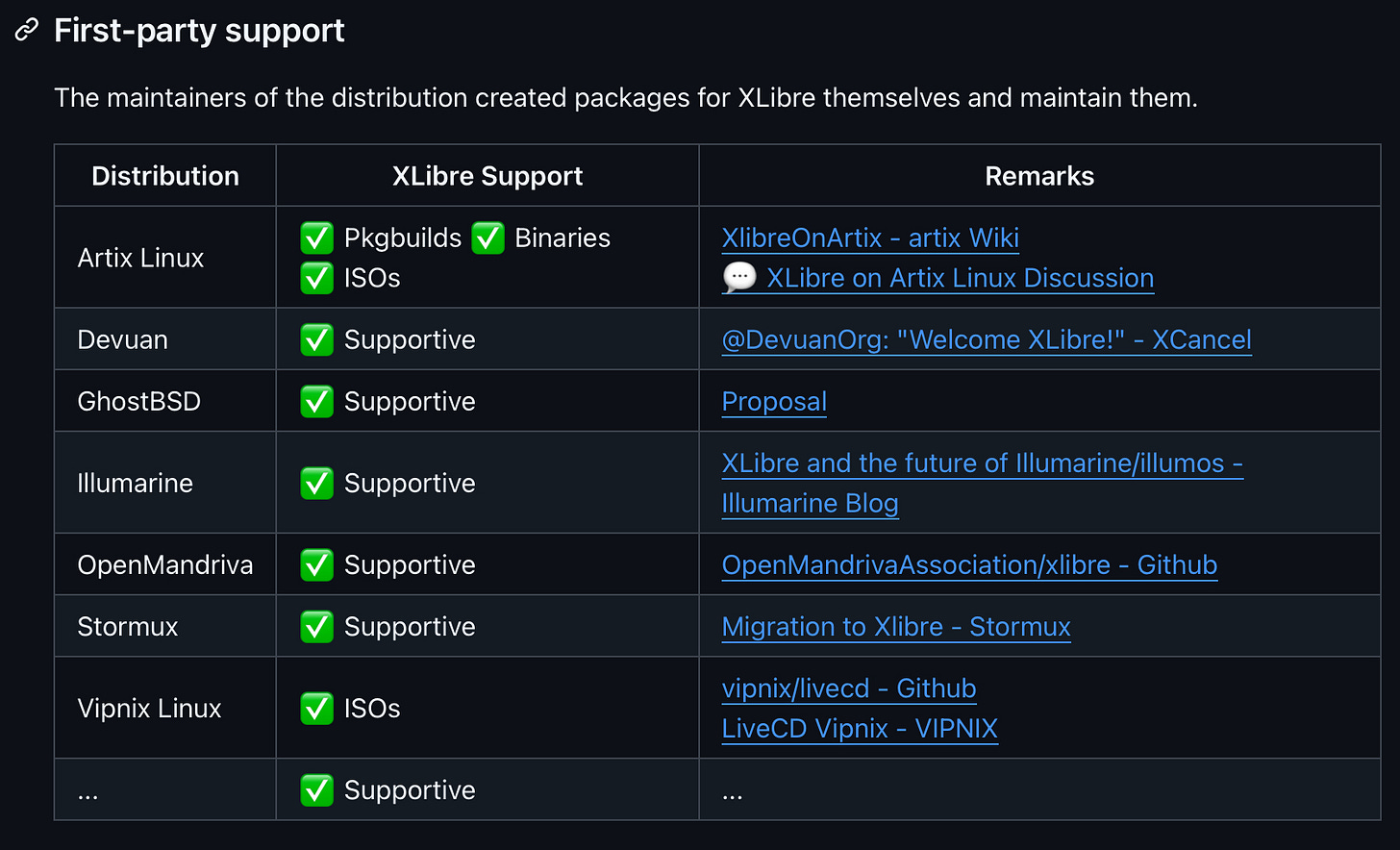
This is important to note: All of that support has occurred even though XLibre has only existed for one month. Several systems already officially supporting it is nothing short of “crazy impressive”. Borderline unprecedented.
In addition, a number of systems have 3rd party repositories which allow users to install and use XLibre. Including: Arch, FreeBSD, Gentoo, NixOS, Slackware, and (seriously) macOS.
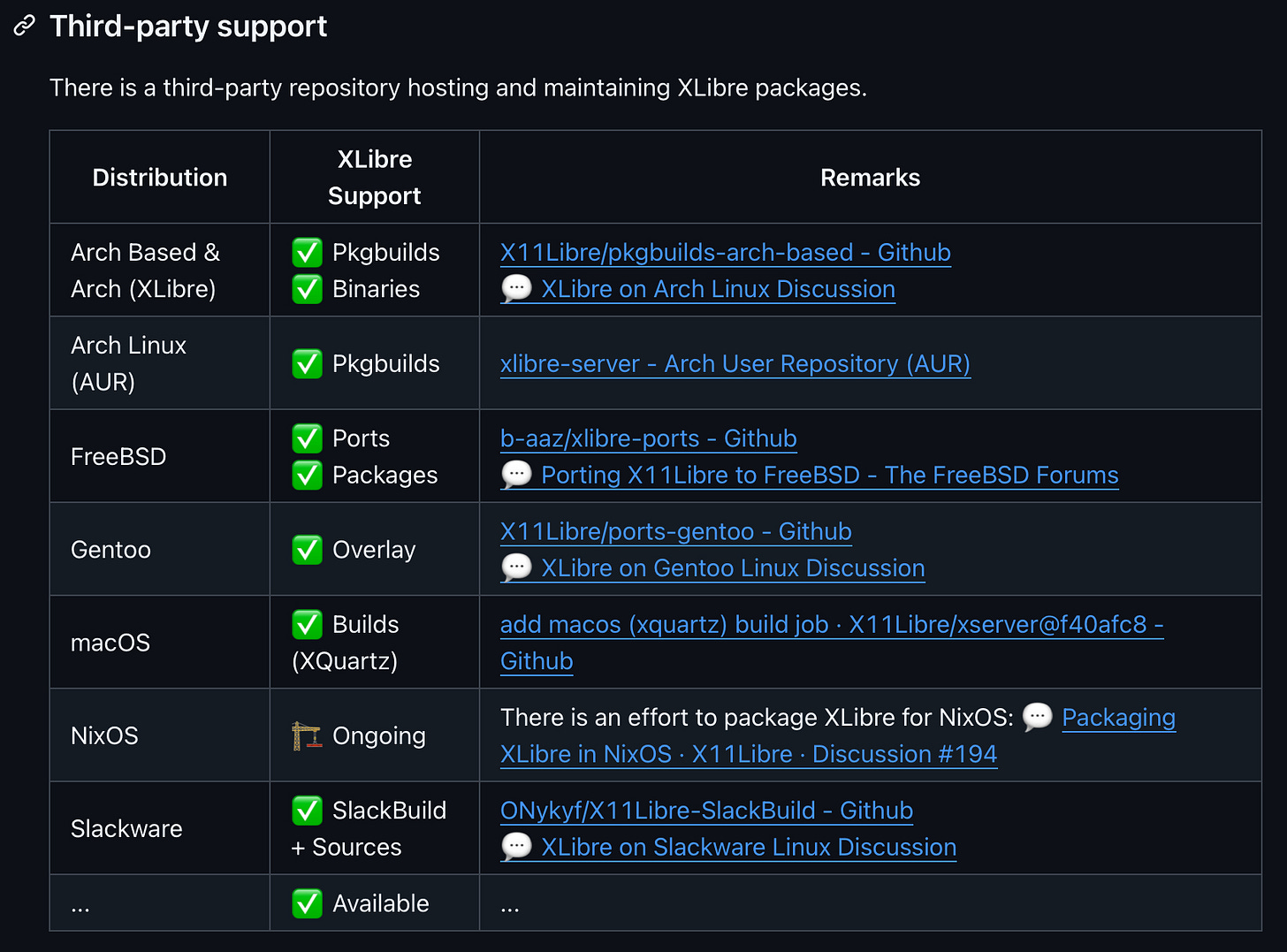
In short: Growing group of developers. Rapidly growing platform support. New releases which put the original project (Xorg) to shame.
Redot - The Godot Game Engine Fork
The Redot project — which forked off of Godot back in October of 2024 — had a stable release (4.3.1) back in June, and just had a new test release (4.4 Alpha 2). Both with both new features and fixes.
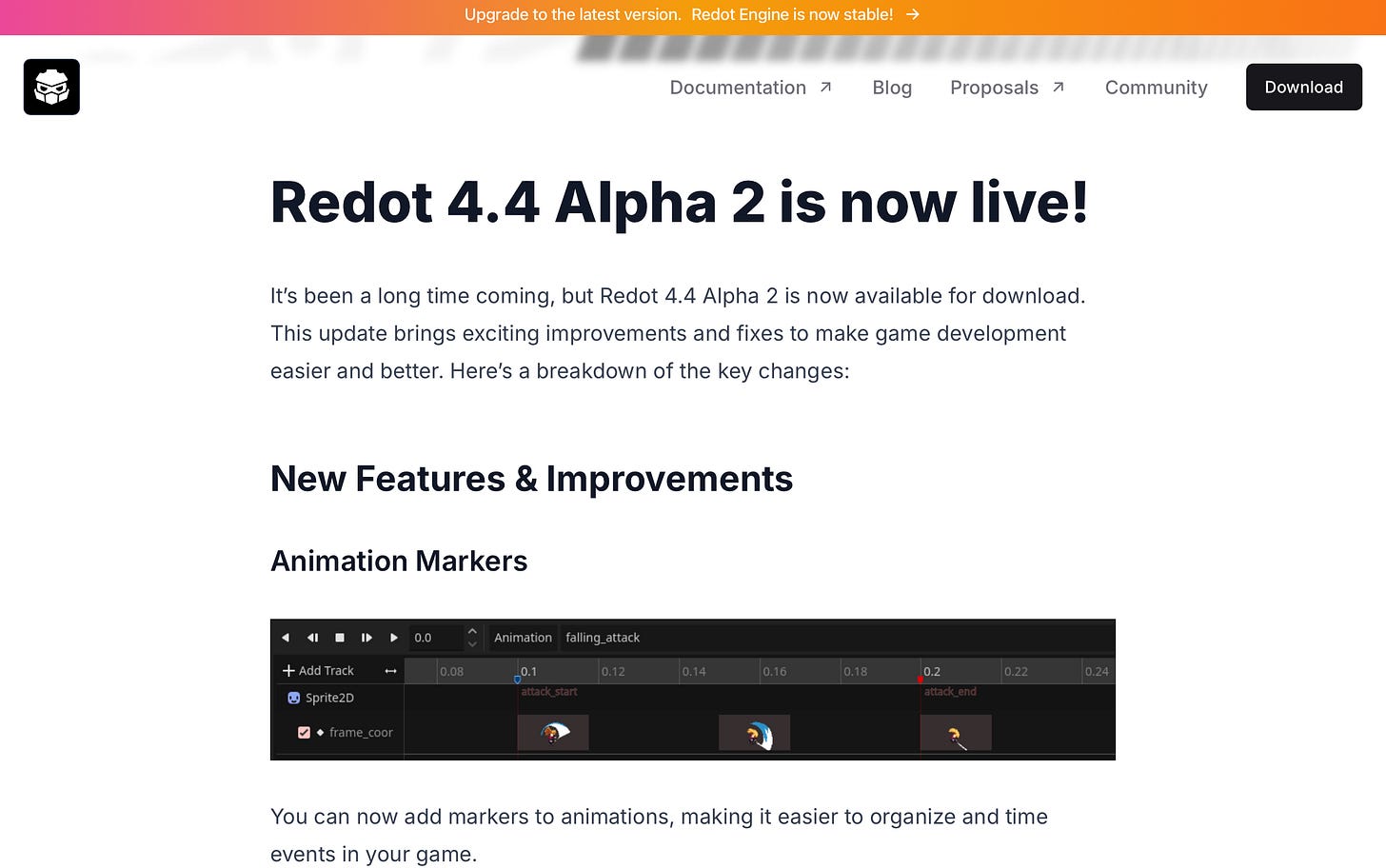
In fact, Redot has had 13 releases since the project started late last year.
With an absolutely massive number of commits since then.
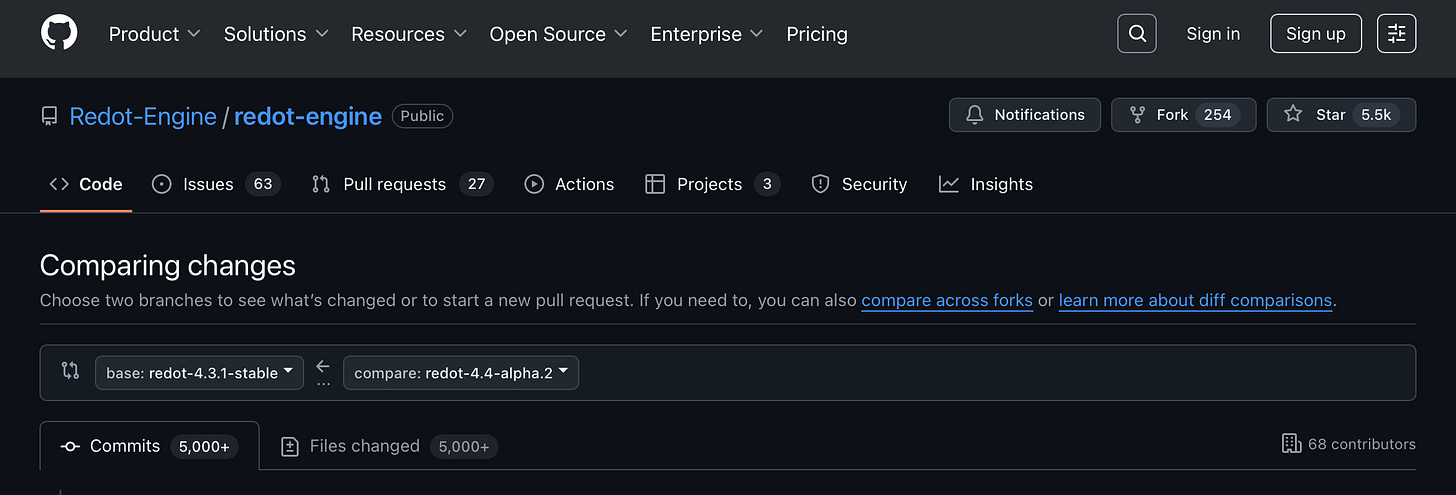
In short: Steady, new releases. New features and bug fixes. Both stable and testing releases.
These Projects are Thriving
It’s hard to look at either of these projects and come to any conclusion other than they are absolutely thriving.
At this point, it’s looking like those who predicted rapid failure for these “Political Forks” were not only wrong… but wildly, obscenely wrong.
There’s a lesson in there.
